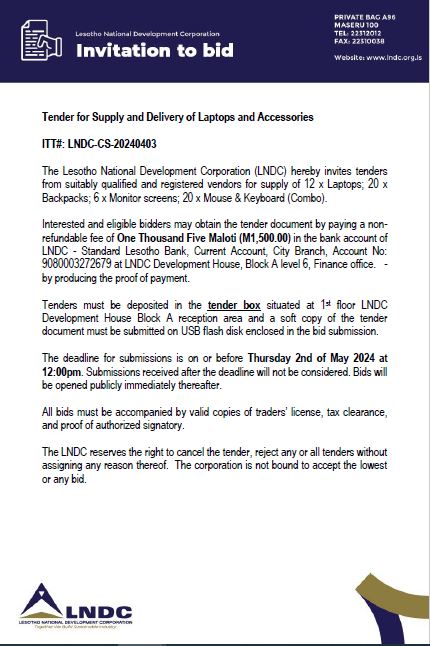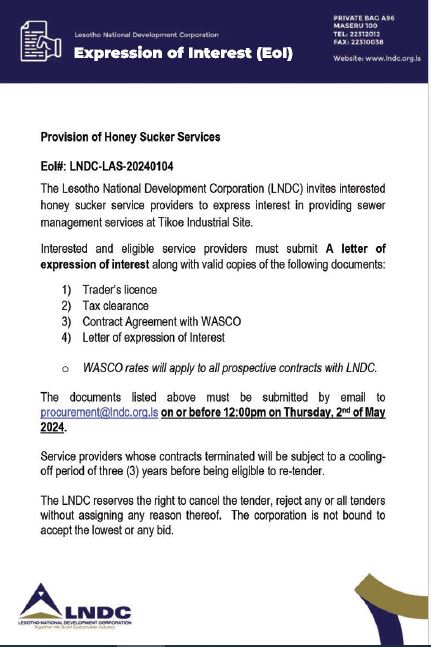…4+1 drivers are at risk of arrest for using hooters for touting
Mojabeng Moalosi
Honking is viewed by the law as a danger signal given by drivers, but since the existence of 4+1 taxies, it is used to court commuters, a norm which according to Traffic Commissioner Mathabo TÅ¡osane is illegal and liable to a traffic offence.
“Hooters are only used as a warning not to call attention of the public transport users as it has been happening.â€
“According to the Road Traffic Act of 1981, section 75 (1) Audible warning devices may be used only; (a) To give due warning with a view to avoiding an accident.
“(2) The sound emitted by audible warning devices shall not be prolonged unnecessarily. (3) Motor vehicle may give luminous warning specified in section 86 instead of audible warning, if to do so is more appropriate in the prevailing circumstances.
(5)When warned of the approach of a priority vehicle by its special luminous or audible warning devices every road user shall leave room clear it to pass if necessary stop.â€
“(6) A person who contravenes sub-sections (1), (2) and (5) is guilty of an offence,†says the Act.
Tšosane’s warning emerged last week during a joint press conference attempting to shed a light on the operations of infamous mobile court.
She said this making reference to the norm where public transport operators use hooting as a way of touting commuter.
She indicated that if a mobile court is nearby and a taxi hoots for wooing, they would have committed an offence.
“It is against the traffic of 1981 that public transport is using hooters every time they are looking for public transport users. The hooter is used as a warning only,†she stressed.
“Private and public motorists are supposed to use hooters as a warning only, once they use it for other purpose it is against the traffic law, thus an offence. If such a driver is within the jurisdiction of the Mobile Court operations, officers on duty are on the right to arrest such a person,†Tšosane said.
Newsday spoke with a number of taxi operators to hear their views on the section of the Traffic Act sections, and Pabala Mngomezulu from Botha Bothe local 4+1 association charged that the current Act is out-dated and needed to be amended.
“That ministry needs to have a closer look at their acts and even consider amending the current existing law. We cannot be fined and charged based a law that was drawn in the 1980s while we are living in the millenniums. I do believe that when that act was drafted they did not know that in this year’s 4+1 taxies will be in existent and used as a mode of public transport.â€
“Back in the 1980’s people mostly used buses as their means of transport, and before it reached the bus stop, it used the hooter as a warning that people should get ready to board, but now things are different.
“4+1 taxies do not have a conductor to pursue commuters, how then are we expected to operate if hooting criminalised? This is absurd,†he said.
Section 75 (4) of the Road Traffic Act indicates that when drivers of vehicles are operated by the police, ambulance, fire engines or other priority vehicles as may be prescribed, give warning of their movement by the vehicle’s special warning devices and provided that they do not endanger other road users, they shall not be bound by this chapter, thus exonerating emergency vehicles.
Makhosi Maritintsi from Botha-Bothe’s Linokong taxi association indicated that during bad weather conditions even a conductor cannot be expected to be shouting from outside a window touting passengers therefore drivers are obliged to use hooters and this has been happening for as long as the public transport industry’s existence,†Maritintsi said.
He added, “Some conditions on the road and within our working space forces us to use hooters and i think it is not going to be easy to stop using them despite its illegality.â€
Khosi Mphahlela the private motorist on the other hand advised the transport ministry to revisit its laws and quickly move with time because roads are used always.
“If the ministry and all relevant department wishes to see compliance by the public transport industry, they first need to get their house in order and work on updated laws that will enable compliance and not infringe transport operators’ rights.â€
“I agree that 4+1 drivers are misusing the hooter and it’s very distracting. They use it unnecessarily, for instance cars would be queuing waiting a traffic light to indicate go, but they would hoot continuously and that causes unnecessarily road users conflict. They can be nuisances at times cause panic especially for new drivers,†Mphahlele said
Subsequently, Mankali Molemela a commuter, showed approval of the prolonged.
“When taxies prolonged hooting so that all sits can be occupied because that’s how they communicate with passengers, but they do have a tendency of hooting even when there is no need, perhaps that has married then, but either way, its irritating,†she said.
Nthabiseng Mohale, Magistrate spokesperson mentioned that since the Mobile Court started its operations, there has been progress on reduced numbers of traffic cases unlike when the cases were handled at the Magistrate.
Mohale cleared allegations that motorist are being charged unfairly.
“If one pleads guilty, the court gives a chance for the convicted to ask for reduced fine or sentencing, but if they are unable to convince the court, the fines remain the same,†she said.
Mohale pointed out that the mobile court is not aimed at maximising revenue collection, but to enforce adherence of the existing traffic laws.
“Basotho do not take Lesotho very seriously nor do they respect its laws. When they travel to South Africa, they make sure that their cars are road worthy and have all necessary documentation. They abide by the laws without being forced.
“A clear and most known factor is the use of a safety belt which they are religious with its use when they travel to South Africa, but as soon they cross the border, they untie the belt, that is unacceptable. Those are the things we are trying to right with the mobile court,†she said.
She added, “Since July until now, the Magistrate through the mobile court has heard 1 331 cases of people who were convicted and charged.
“259 Spot fines overdue were paid within a period of seven days. The usual payment for spot fine is M30 and if the spot fine is paid at Magistrate after the due date is M50.â€
She mentioned that at least 2 374 were fined on the spot and paid. They were found to have been driving without a driver’s licence, some didn’t have permit to be driving a public vehicle. Others didn’t have certificate of fitness while others were driving cars with fake car registration numbers.
“Mobile Court was official launched on 1 July and it took a period of a month piloting and prosecuted traffic offences on the spot as opposed to the Tuesday and Thursday scheduled days for traffic cases at the Magistrate Court. The magistrate decided to take the court out to the community using tents; they were removed because of some of uncontrollable challenges including lack of toilets and bad weather conditions.
Mobile court was a donation from the Road Fund.
“We have seen progress because it has answered our prayers since Basotho have been crying for decades about the cases that takes years in courts. The mobile court operations are a collaborative efforts between Ministry of Police, Law Office, Magistrate, Lesotho Defense Force, Road Safety and Ministry of Public Works and Transport.





